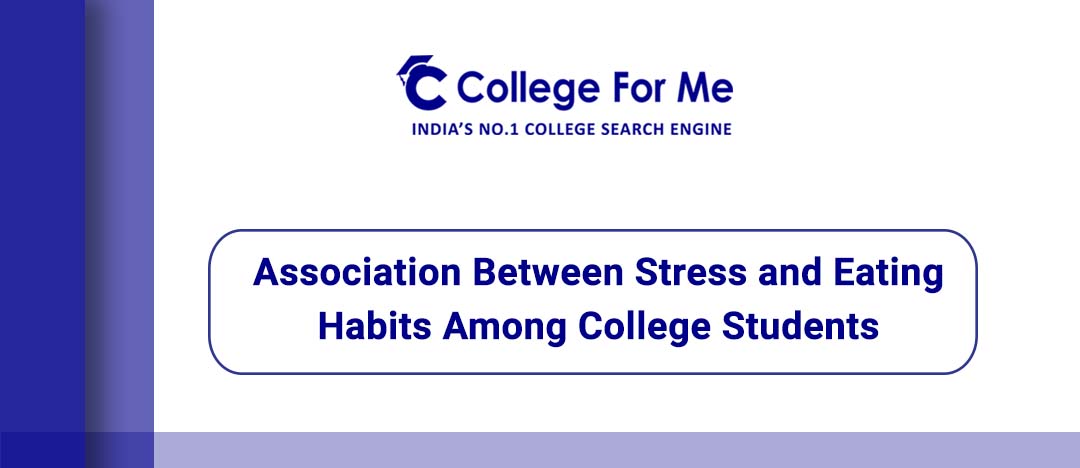Career Scopes Of A B.Tech. Student
There is a high demand for B.Tech. degree holders in the private sector, yet, there is also the opti...

The transition to college life is a significant period of change, characterized by newfound independence, academic challenges, and social adjustments. Amidst these changes, many college students face stressors that can have a profound impact on various aspects of their lives, including their eating habits. The relationship between stress and eating habits has garnered increasing attention due to its potential implications for both physical and mental well-being.
This article explores the association between stress and eating habits among college students, shedding light on the factors that contribute to this connection and the potential consequences for students' health.
Stress and Its Impact
College students often experience high levels of stress due to academic pressures, financial concerns, social expectations, and the demands of living away from home. Stress triggers physiological responses in the body, including the release of cortisol, commonly referred to as the "stress hormone." Elevated cortisol levels can influence eating behaviors and preferences, often leading to changes in appetite and food choices.
Emotional Eating
One common way stress manifests in eating habits is through emotional eating. Emotional eating is the practice of using food as a coping mechanism for negative emotions, such as anxiety, sadness, or frustration. When facing stress, some individuals turn to comfort foods that are typically high in calories, sugars, and unhealthy fats. These foods can provide temporary relief from emotional distress but may lead to weight gain and other health problems over time.
Effects on Food Choices
Stress can also impact food choices in more nuanced ways. Some students under stress may experience a loss of appetite, leading to skipped meals or inadequate nutrient intake. On the other hand, stress might drive others to seek solace in excessive consumption of unhealthy foods. The relationship between stress and food choices is complex and can vary among individuals based on their coping mechanisms, personal preferences, and cultural influences.
Cortisol and Cravings
Cortisol, released during stress, can trigger cravings for foods that are high in sugar, fat, and salt. These cravings are thought to be an evolutionary response aimed at providing quick bursts of energy to deal with perceived threats. However, in the modern context of chronic stress, these cravings can contribute to overeating and poor dietary habits. College students often find themselves surrounded by easily accessible, convenient, and indulgent food options, which can exacerbate the effects of stress on eating habits.
Potential Health Consequences
The association between stress and poor eating habits can have significant implications for students' overall health. A diet high in unhealthy foods can contribute to weight gain, obesity, and related health issues such as diabetes, cardiovascular diseases, and metabolic disorders. Moreover, the emotional toll of stress-eating can perpetuate a cycle of negative emotions, potentially leading to mental health concerns like anxiety and depression.
Interventions and Strategies
Recognizing the impact of stress on eating habits, colleges and universities are increasingly focusing on providing resources to help students manage stress and develop healthier coping mechanisms. Counseling services, mindfulness programs, and educational workshops are some of the initiatives aimed at equipping students with tools to navigate stressors effectively. Encouraging regular physical activity, balanced diets, and stress-reduction techniques like meditation and yoga can also play a role in mitigating the negative effects of stress on eating habits.
Conclusion: The association between stress and eating habits among college students underscores the need for comprehensive support systems that address both mental and physical well-being. Understanding the complex interplay between stress, hormones, emotional responses, and food choices can empower students to make healthier decisions and manage stress more effectively. By fostering a holistic approach to wellness, colleges can help students navigate the challenges of college life with greater resilience and minimize the potential long-term health consequences of stress-induced eating habits.

There is a high demand for B.Tech. degree holders in the private sector, yet, there is also the opti...

If you are looking for a bright and prospective career, then getting a B.Tech. in CSE must be under ...
Comments (0)